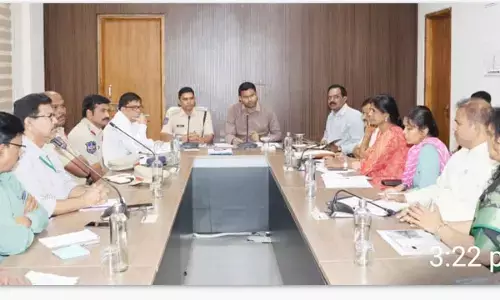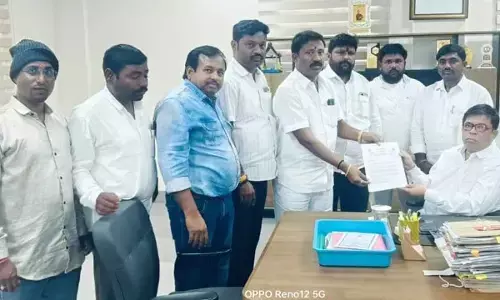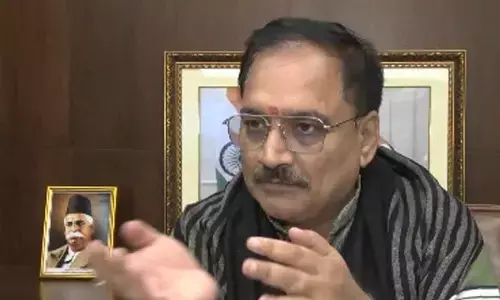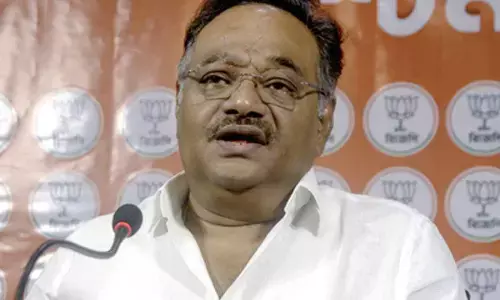Need a holistic New Tax Code rooted in the philosophy of keeping it F.L.A.T. for a Vikshit Bharat, assert experts at Think Change Forum seminar

- Tax planners' mindset must shift from increasing tax rates to widening the tax base with lower rates for improved collections and compliance
- Both direct and indirect taxes must have fewer slabs, lower peak rates; do away with withholding tax; reduce reliance on litigation for meeting targets
- Merge the 12% and 18% GST slabs into a single slab of 16%
Leading taxation experts speaking at a seminar organized in the run-up to the planning for the Union Budget 2025 asserted the need for a shift in the mindset of tax planners from increasing tax rates to widening the tax base and enhancing compliance. A new philosophy of keeping it F.L.A.T., with Fewer and lower tax rates, Litigation reduction, an All-inclusive wider tax base, and Tax collection without withholding it, is urgently needed to increase net tax revenues while energizing the economy and realizing the vision of a Vikshit Bharat by 2047
The seminar “The New Tax Code: Ideas for building tomorrow’s India” was organized by Think Change Forum (TCF), an independent think tank dedicated to generating new ideas and finding solutions for navigating through a new changing world. Speaking at the seminar were PC Jha, Former Chairman, Central Board of Indirect Taxes and Customs, Rajiv Chugh, Partner and Leader - Policy Advisory & Speciality Services, Ernst & Young LLP, Suraj Malik, Managing Partner, Legacy Growth and Rajat Mohan, Senior Partner, AMRG & Associates.
F.L.A.T Philosophy of taxation at a glance
· Fewer and Lower Rates
· Litigation Reduction
· All-Inclusive Wider Tax Base
· Tax Collection Without Withholding it
The concept of Fewer & Lower Tax Rates of the F.L.A.T, is best exemplified in the words of Mr. PC Jha, Former Chairman, Central Board of Indirect Taxes and Customs, “It is certainly not a good situation that we have so many tax rates under GST. Ideally, GST should be one tax rate, but in our country, it is not possible to have one tax rate. But perhaps having three tax rates can be relooked at, and instead of 12% and 18%, we can have a single rate of 16%.”
He further elaborated on the pitfalls of higher taxes, “Tax officials should realise that higher tax rates lead to evasion. The size of illicit trade in India is growing and the primary reason is high taxes. So, the country’s economy is getting adversely affected.”
Rajiv Chugh, Partner and Leader - Policy Advisory & Speciality Services, Ernst & Young LLP supported the need to simplify the current provisions in the taxation system, saying, “Reduction in tax rates will lead to rise in disposable income in hands of citizens and companies will also be able to spend more. If rationalised, it can lead to a booming economy.”
The urgency for Litigation Reduction of the F.L.A.T, was explained by Rajat Mohan, Senior Partner, AMRG & Associates, who said that there is a significant reliance on litigation based revenues for tax departments to meet their targets, although the success rate of government in tax litigation cases is dismal, building a case for a re-look.
“The government loses more than 50 percent of the litigation cases before they reach the Supreme Court. Recently, we have seen tax demands made on companies which don’t even have revenues of the size of the tax demand. So, the litigation cases have to go down for a more efficient tax system,” said Mohan.
The need for simplification of the tax laws, their consistency with focus on compliance and widening of tax base as part of the ‘All-inclusive wider tax base’ of the F.L.A.T was elaborated by multiple experts.
Suraj Malik, Managing Partner, Legacy Growth noted that though there have been incremental changes in the tax laws and a lot of ambiguities have gone, there still is a wide gap in international and Indian practices, and foreign investors are looking for consistency in Indian tax laws.
“Over the years, our tax law is now relatively wiser. Foreign investors are also nowadays looking for consistency in terminologies and they get a little bit spooked when it comes to some of the aspects. They don’t want too many changes and things to get stuck. Also, the terminologies should be written in a language and manner which are easily understood, especially by Gen Z,” said Malik.
Rajat Mohan highlighted how stability in tax rates is crucial in ensuring viability of small businesses.
“GST was a masterstroke. However, what has happened in the past few years is that there have been many amendments and changes in compliances. Any change in rates impacts everyone in the ecosystem. We have to stabilise the rates for the benefit of small businesses,” said Mohan.
A radical shift in the mindset through the concept of ‘Tax collection without withholding’ of F.L.A.T, was elaborated upon by Mr. Rajiv Chug, who said, “What is happening is that if taxes are withheld, government incurs interest cost. Is that something which can be done away with reduction of rates or putting in an advance tax to make things better? Do we actually require withholding tax?”
“Worldwide, countries do not have domestic TDS provisions as every citizen must be responsible for discharging own tax. Advance tax obligation can be at par with TDS deposition obligation so that government’s cash flow remains unaffected. As a first step, TDS provisions can be done away with for all domestic payments except for salaried individuals and in case of unregistered suppliers under GST. Alternatively, exemption of large taxpayers (basis listing or revenue threshold) will ease compliance for burden for small tax deductors as well. These measures will result in further ease of doing business in the form of reduced compliances and more tax certainty, reduced tax collection cost for government and better governance.”
Although the panellists deliberated at length on the challenges and processes, they were unanimous in their views about the significant steps taken by the government in ushering in reforms in taxation. They concurred that both comprehensive changes over a medium term and tweaking of tax rates in the short term will go a long way in boosting consumption.
















